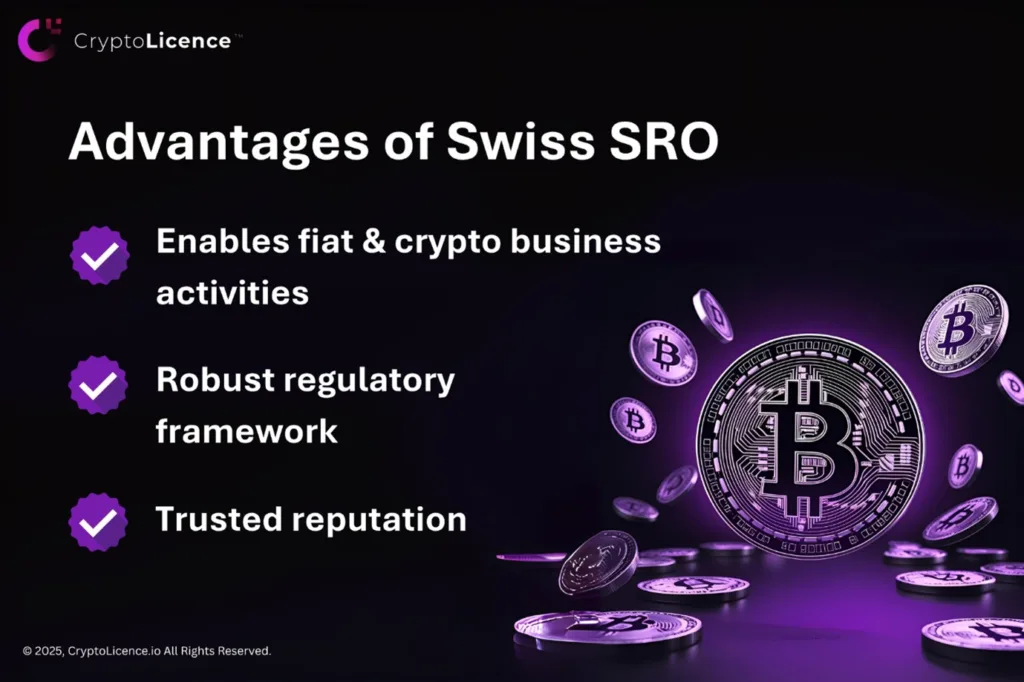
As Bitcoin Hits New Highs, Swiss SRO Helps You Stay Grounded and Compliant
Table of Contents
Bitcoin Surged to a New All-Time High This Week, Capturing Global Attention! As the U.S. Congress launches “Crypto Week” with heated discussions, the future direction of the digital asset market has become a hot topic. How will this wave of momentum reshape the industry landscape? More importantly, how can crypto businesses seize the opportunity and position themselves for long-term success? From market outlook to licensing strategy, we break it all down — helping you act decisively and stay compliant in the fast-moving world of crypto.
Bitcoin Breaks 120K as Institutional Buying and Tokenization Drive Market Momentum
On July 14, 2025, Bitcoin decisively broke through the $120,000 mark, setting a new all-time high and reigniting enthusiasm among global investors. The driving force behind this surge? Major capital inflows from corporations and institutions.
Companies like MicroStrategy and Metaplanet have accelerated institutional adoption of crypto by significantly increasing their Bitcoin holdings. Meanwhile, Wall Street giants such as Morgan Stanley and Goldman Sachs have demonstrated their strong confidence in the market by investing in Bitcoin ETFs like BlackRock’s iShares Bitcoin Trust (IBIT).
At the same time, the tokenization of traditional financial assets is emerging as a powerful trend. Tokenized gold products such as PAXG continue to attract investor interest for their stability and liquidity, expanding the practical use cases for digital assets. In a notable move, Robinhood recently launched tokenized shares of private companies like OpenAI and SpaceX in Europe — offering retail investors affordable access to high-growth assets. This marks a new milestone in the deepening integration between crypto and traditional finance.
Meanwhile, the U.S. Congress is holding its much-anticipated “Crypto Week” from July 14–18, debating three key bills:
- The GENIUS Act,
- The CLARITY Act (Digital Asset Market Clarity Act), and
- The Anti-CBDC Surveillance State Act.
Although initial procedural votes have stalled progress, the discussions highlight the accelerating momentum toward regulatory normalization of the crypto industry.
From Bitcoin’s historic rally, to breakthroughs in asset tokenization, to the gradual formation of regulatory frameworks, the crypto market is bursting with opportunity. For Virtual Asset Service Providers (VASPs) and Payment Service Providers (PSPs) alike, forward-looking planning and a strong compliance strategy are not just necessary to weather market shifts — they’re the key to staying ahead in a rapidly evolving global landscape.
Fiat and Crypto Are Converging — Global Licenses Give You a Competitive Edge
The booming development of the cryptocurrency market is driving rapid growth in On/Off-Ramp services — the vital infrastructure connecting traditional finance with digital assets. In Hong Kong, this surge in demand for Virtual Asset Service Providers (VASPs) has made the Money Service Operator (MSO) license, issued by the Customs and Excise Department (C&ED), increasingly competitive and highly coveted. Both the difficulty of application and the strategic value of the license continue to rise.
Globally, “dual-purpose” licenses that support both crypto-related activities and traditional financial services are gaining popularity for their flexibility and cost-efficiency. Notable examples include:
- Australia’s Digital Currency Exchange (DCE) registration,
- Canada’s Money Services Business (MSB) registration, and
- Switzerland’s Self-Regulatory Organization (SRO) membership.
These license types typically cover not only fiat–crypto conversion but also extend to payments, custody, and cross-border settlement, offering a compliant and scalable foundation for diverse business models. By consolidating regulatory coverage, they help reduce operational complexity and enhance competitive positioning in the global market.
In the section below, we provide a side-by-side comparison of these three license types — outlining key application requirements, regulatory characteristics, and ideal business use cases — to help you make informed decisions and strategically enter the crypto space.
| Items | Australia DCE | Canada MSB | Switzerland SRO |
|---|---|---|---|
| Regulator | AUSTRAC | FINTRAC | FINMA-approved SROs (e.g. VQF, SO-FIT) |
| Permitted Activities | – Crypto-fiat exchange – Remittance service (only if separately registered as remittance provider with AUSTRAC) | – Foreign Exchange Dealing – Issuing or Redeeming Money Orders – Money Transferring – Digital Payment Processing – Remittance – Dealing in Virtual Currencies | – Payment services in fiat & crypto – Crypto custody – Card issuance – Staking – Fiat/crypto exchange (CEX/FX) |
| Local Director | Yes | Not required, but recommended. | Yes *Alternatively, can appoint a local signatory. |
| Local Compliance Officer | Yes | Not required, but recommended. | Yes |
| Local Office | Not required *Virtual or registered address is sufficient. | Not required *Virtual or registered address is sufficient. | Yes |
| Mandatory Compliance Documents at Application | – AML/CTF Program – Beneficial ownership details | – AML Compliance Program – Beneficial ownership disclosure | – AML Manual – Business Case – Compliance officer details – UBO declaration – Org chart |
| Regulatory Interview | No | No | Yes |
| Capital Requirement | No specific requirements | No specific requirements | CHF 100,000 (USD 125,000) |
| Reputation | Good | Good | Very Good |
| Timeline | 3 – 6 months | 2 – 3 months | 6 months |
| Maintenance Cost | USD 20k – 40k / year | USD 30k – 50k / year | USD 50k – 70k / year |
| Price of Ready-Made License | USD 90k – 110k | USD 20k – 30k | USD 200k – 250k |
Swiss SRO Emerges as the Preferred Choice for Navigating the New Financial Landscape
As the crypto market continues to grow at an unprecedented pace, selecting the right license has become essential for Virtual Asset Service Providers (VASPs) and Payment Service Providers (PSPs). Among the increasingly popular “dual-use” licenses — Australia’s Digital Currency Exchange (DCE), Canada’s Money Services Business (MSB), and Switzerland’s Self-Regulatory Organization (SRO) — each offers distinct advantages. But when it comes to long-term stability and global competitiveness, the Swiss SRO stands out as the top choice. Its internationally recognized compliance standards and regulatory clarity give operators a significant edge in today’s tightening global regulatory environment.
Australia’s DCE license is well-known for its fast registration and low maintenance costs, requiring only a simple registration with AUSTRAC and minimal paperwork. However, its limitations are significant. DCE is not considered a full financial license, which often leads to scepticism from banks. This makes it difficult to establish reliable banking partnerships — a serious concern for payment businesses that rely on stable fiat channels. These challenges become especially apparent in cross-border transactions and high-frequency trading scenarios, where liquidity and speed are critical.
The Canadian MSB license is praised for being crypto-friendly and efficient to obtain, with no minimum capital requirement and moderate maintenance obligations. It is ideal for startups looking to quickly enter the North American market. However, its relatively light regulatory weight can be a double-edged sword. Banks often classify MSB accounts as high risk, making it difficult for operators to secure and maintain traditional financial partnerships. For businesses aiming to build long-term trust or expand internationally, this can become a major growth constraint.
In contrast, the Swiss SRO license, overseen by self-regulatory organizations recognized by FINMA, has become the gold standard in the crypto space. It offers exceptional regulatory clarity, strong international credibility, and comprehensive coverage. In addition to crypto trading, custody, and fiat-crypto exchange, SRO-licensed entities are also allowed to engage in staking, payment card issuance, and other innovative financial services — offering exceptional flexibility.
While the application process is more demanding — requiring a minimum capital of CHF 100,000 and higher ongoing compliance costs — the benefits are unmatched. SRO licensees are viewed favourably by both banks and institutional partners, ensuring stable fiat channels and smooth business expansion. For serious players aiming to scale globally and maintain long-term regulatory resilience, the Swiss SRO is a strategic investment.

The ongoing debate in the U.S. Congress during “Crypto Week” — including proposed legislation such as the GENIUS Act — signals a tightening global regulatory landscape. In this context, the limitations of lightweight licenses are becoming increasingly apparent. While Australia’s DCE and Canada’s MSB offer quick registration and low cost, their simplicity may fall short in meeting the demands of a more complex compliance environment.
In contrast, Switzerland’s SRO license, backed by a robust regulatory framework and global recognition, provides long-term security for serious operators. Whether in cross-border payments, DeFi innovation, or integration with traditional finance, the SRO license helps businesses earn institutional trust and build sustainable competitive advantages.
For those seeking speed and simplicity, the Australia DCE and Canada MSB remain viable entry points. But for operators prioritizing long-term resilience, regulatory credibility, and strategic growth, the Swiss SRO is the superior choice. Forward-looking businesses should act early — strengthening their AML/CTF frameworks and leveraging the high credibility of the SRO license to gain a first-mover advantage in the global crypto market.
Start Your Crypto Business Today — With CryptoLicence’s All-in-One Service
The crypto industry is entering a new era of unprecedented growth. To seize the moment, selecting the right license is critical to your success. Whether you’re drawn to the fast-track registration of Australia’s DCE, the cost-efficiency of Canada’s MSB, or the high credibility and global recognition of Switzerland’s SRO, CryptoLicence offers end-to-end solutions to help you launch and scale with confidence.
Our expert team brings over 10 years of industry experience and deep knowledge of global regulatory landscapes. We tailor strategies for license application, compliance system setup, and cross-border business expansion — all customized to your goals. From preparing application documents and building robust AML/CTF frameworks, to acquiring ready-made licenses, we ensure every step is efficient, smooth, and worry-free.
We also provide ongoing compliance updates and regulatory advisory services, helping you stay ahead in an environment of tightening global oversight — and maintain your competitive edge.
Don’t let complex procedures hold back your crypto ambitions.
Contact our expert team today for a free consultation and take the first step toward securing your license, entering the market, and building a trusted, future-ready crypto business.